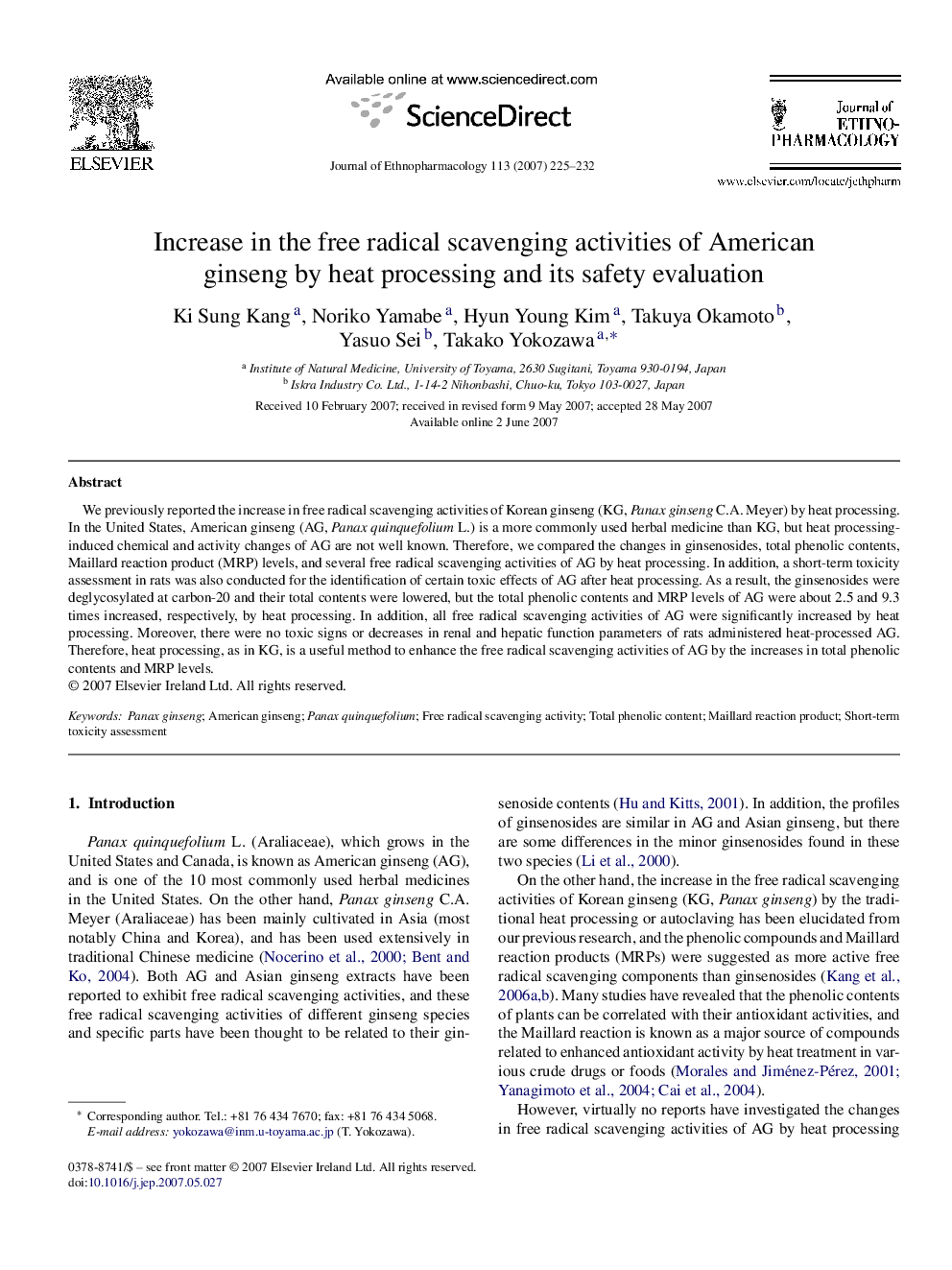| Article ID | Journal | Published Year | Pages | File Type |
|---|---|---|---|---|
| 2547996 | Journal of Ethnopharmacology | 2007 | 8 Pages |
We previously reported the increase in free radical scavenging activities of Korean ginseng (KG, Panax ginseng C.A. Meyer) by heat processing. In the United States, American ginseng (AG, Panax quinquefolium L.) is a more commonly used herbal medicine than KG, but heat processing-induced chemical and activity changes of AG are not well known. Therefore, we compared the changes in ginsenosides, total phenolic contents, Maillard reaction product (MRP) levels, and several free radical scavenging activities of AG by heat processing. In addition, a short-term toxicity assessment in rats was also conducted for the identification of certain toxic effects of AG after heat processing. As a result, the ginsenosides were deglycosylated at carbon-20 and their total contents were lowered, but the total phenolic contents and MRP levels of AG were about 2.5 and 9.3 times increased, respectively, by heat processing. In addition, all free radical scavenging activities of AG were significantly increased by heat processing. Moreover, there were no toxic signs or decreases in renal and hepatic function parameters of rats administered heat-processed AG. Therefore, heat processing, as in KG, is a useful method to enhance the free radical scavenging activities of AG by the increases in total phenolic contents and MRP levels.
